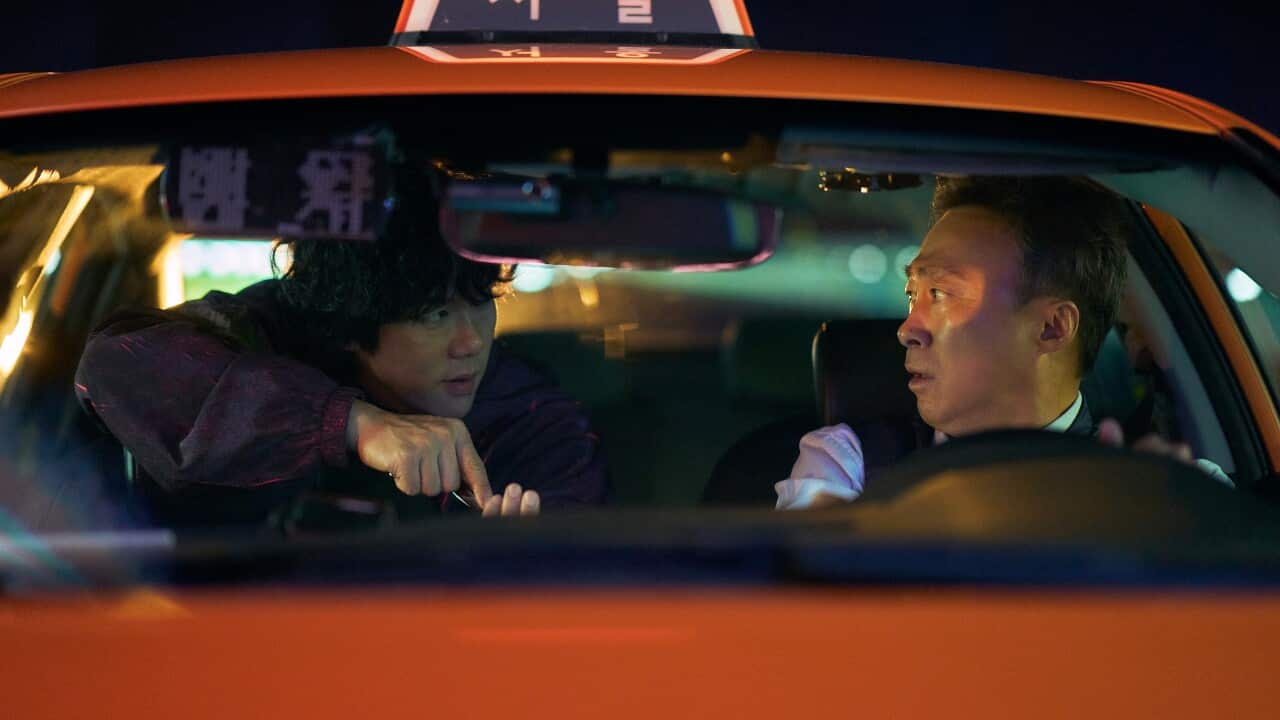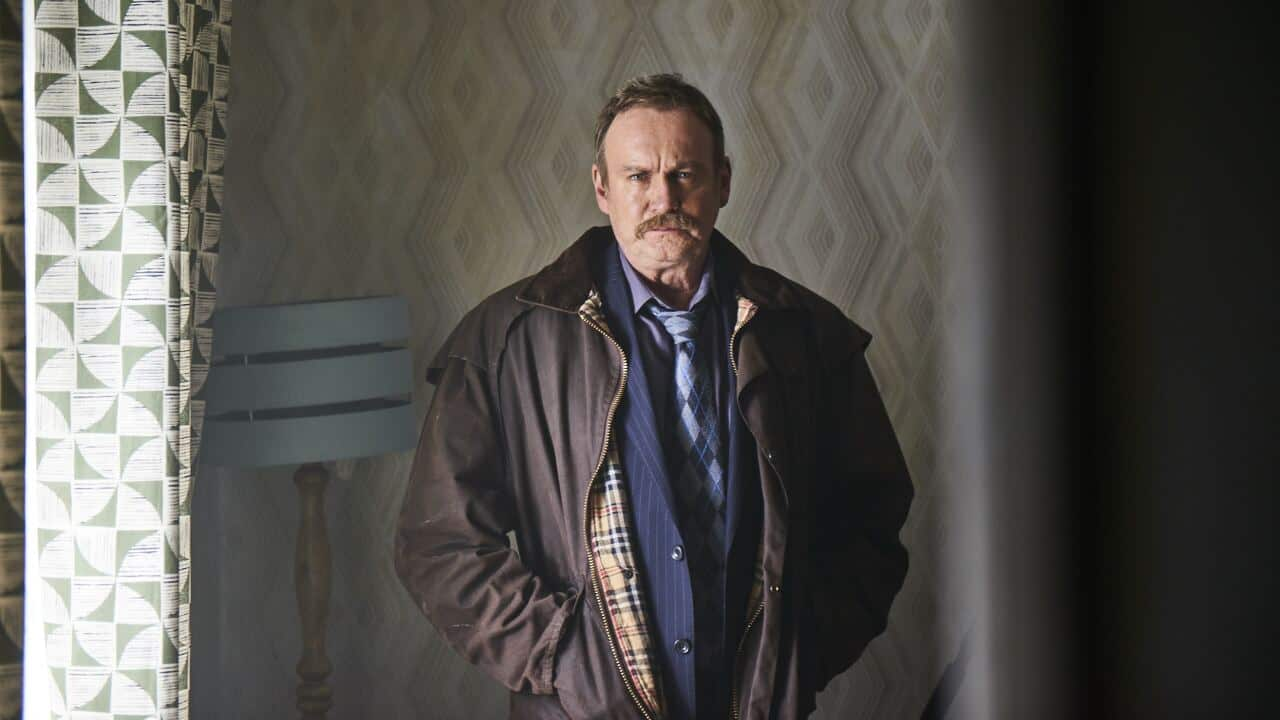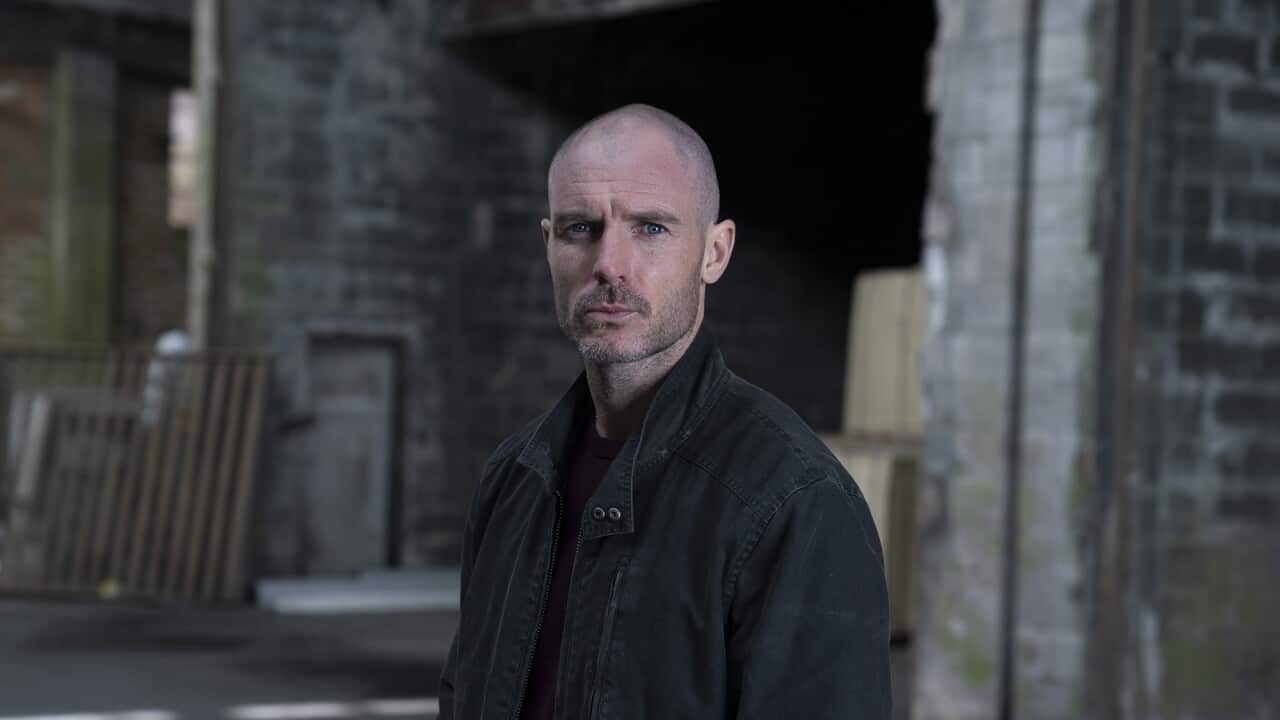In the opening sequence of Tokyo Vice, American reporter Jake Adelstein (Ansel Elgort) and Japanese vice squad detective Hiroto Katagiri (Ken Watanabe) don stab-proof vests before going to a sit-down meeting at a high-class restaurant with a member of the yakuza, Japan’s notorious organised crime syndicates.
After being told in no uncertain terms that publishing a story he’s been pursuing will result in not only his death but the deaths of his entire family, Adelstein coolly asks if he can smoke a cigarette while he considers the offer. The sharp-suited thug even lights it for him. From there, we flash back two years to 1999 to see how the very white, very young Adelstein found himself in such a fraught situation.
This is Tokyo Vice.

Jake Adelstein (Ansel Elgort) is out of his depth. Source: HBO Max / Endeavour Content / WOWOW

Rinko Kikuchi in 'Tokyo Vice'. Source: HBO Max / Endeavour Content / WOWOW
Tokyo Vice, however, frames Elgort’s Adelstein as a babe in the woods, hopelessly out of his depth – at least initially. He may have read deeply about Japan, he might love the food and the clubs and the history, but he doesn’t know the streets and he fits awkwardly in the culture he’s trying so hard to immerse himself in – visually Elgort is frequently shot towering over his Japanese colleagues in the newsroom, a clear marker of his outsider status. Elsewhere the vibrant neon shimmer of nighttime Tokyo evokes the garish yakuza films of Seijun Suzuki, such as Tokyo Drifter (1966) and Branded to Kill (1967), while some matter-of-fact violence can’t help but recall Takeshi Kitano’s gangster pictures, from Violent Cop (1989) to Outrage (2010).

Show Kasamatsu as Sato. Source: HBO Max / Endeavour Content / WOWOW

Ken Watanabe Source: HBO Max / Endeavour Content / WOWOW
And Tokyo Vice is a great noir. It might be a fiction based on an exaggeration, but it’s still utterly gripping TV.
Stream free On Demand

Tokyo Vice
series • Crime drama • Japanese
MA15+
series • Crime drama • Japanese
MA15+
MORE GREAT DRAMA

‘A Bloody Lucky Day’ is a twisting game of cat and mouse







